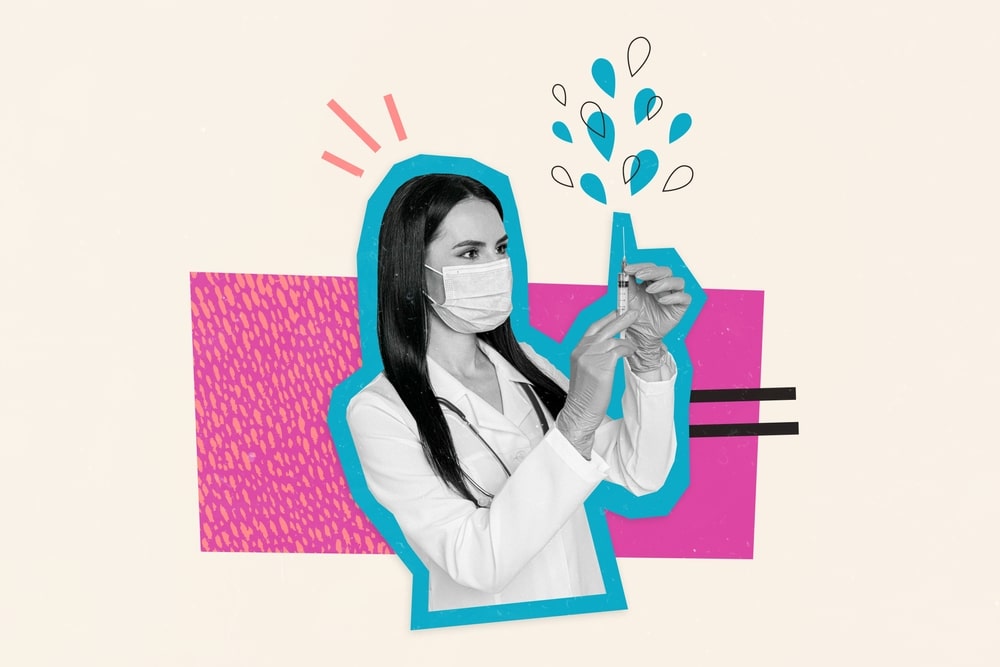LPN vs. RN: what’s the difference?

RNs perform more responsible, autonomous work than LPNs.
This is reflected in higher salaries and more time spent in education.
Starting your nursing career as an LPN could help you get more hands-on experience at the outset, but this could result in more student debt.
If you are investigating a nursing career, you have probably realized that there are many types of nurses. From certified nursing assistants to nurse practitioners, the duties, pay grade, and educational requirements for different nursing roles vary widely.
In this article, we’ll compare 2 of the most common types of nurses: registered nurses (RNs) and licensed practical nurses (LPNs), who are called licensed vocational nurses, or LVNs, in California and Texas.
We’ll go over the main differences in educational requirements, job duties, and salary.
Finally, we’ll shed some light on some important economic considerations of becoming an LPN vs an RN (or becoming an LPN first) to help you make the best financial decision for your nursing career.
The 3 key differences between an LPN and an RN
The 3 key differences between an LPN and an RN relate to:
- Education – It takes 2-4 years of college to become a registered nurse, whereas LPN certificate programs usually last 12-18 months.
- Scope of practice and job duties – An RN’s duties involve more responsibility, medical knowledge, and critical thinking. LPNs’ work, which is more routine, is always supervised by an RN.
- Salary and career opportunities – RNs are paid around 44% more than LPNs according to the Bureau of Labor Statistics (the BLS). RNs also have more opportunities for professional advancement.
LPN vs. RN education requirements
Read on for an overview of the differences in education requirements between LPNs and RNs.
LPN education requirements
LPNs spend less time in school than RNs.
A typical LPN program takes 12-18 months of vocational training, and it results in a certificate rather than a college degree. Some accelerated programs can be completed in as little as 6 months.
LPN programs tend to focus only on the practical aspects of taking care of patients, like feeding techniques, patient safety, or elder care. Like all nursing programs, you will need to complete “clinicals,” or hands-on learning, to get your degree.
To become an official LPN, you will need to pass the NCLEX-PN exam after you complete your course.
RN education requirements
You need to go to college to become an RN. There are 2 main degrees you can get.
- Associate Degree in Nursing (ADN). ADN programs usually last 2 years. You can get an ADN at your local community college or a specialized nursing school. Unfortunately, some ADN programs may have a waiting list of a year or 2 to enroll.
- Bachelor of Science in Nursing (BSN). A BSN takes about 4 years to complete. If you go the generic BSN route, you’ll have the traditional college experience, and nursing will be your major. You’ll probably need to take general educational credits that aren’t relevant to nursing, but you’ll emerge with a “well rounded education” (hopefully). Note that many BSN programs are highly competitive – you’ll need good science grades as an underclassman to get in.
Many nurses with an ADN “level up” with a BSN through an ADN-BSN bridge program later in their careers.
In fact, New York State actually requires RNs to do this through its BSN in 10 law – nurses with an ADN have 10 years to go back to college and obtain a BSN if they want to retain licensure.
Wait, what’s a bridge program?
In nursing, a bridge program is a degree that allows nurses with work experience to go back to school and earn a higher degree, advancing their careers. They are generally shorter than non-bridge (or “generic”) nursing degrees.
Thus, while a BSN might take 4 years, an RN-BSN bridge program factors in the nurse’s pre-existing knowledge, allowing them to obtain a BSN in 2 years of study.
Some employers help nurses pay for an RN-BSN bridge program.
While BSN and ADN programs both include practical, hands-on learning in a clinic or hospital (called “clinicals”), a BSN involves more theory and science classes than an ADN. Some BSN students will even take the same pre-requisite courses as med school hopefuls.
The BSN is the more advanced degree, and it opens the door to higher paid positions.
While ADN programs are less theoretical than a BSN, they are still more challenging academically than LPN programs.
After you complete your ADN or BSN degree, you’ll need to pass the NCLEX-RN exam to become a registered nurse.
A note on online nursing programs
You can get a nursing degree online. Well… sort of.
While you can complete coursework and listen to lectures at home on your couch, you’ll still need to do your clinicals – the hands-on learning component of a nursing program – in person.
Online nursing programs are therefore better described as hybrid.
Clinicals can be completed in a local clinic or hospital. Your online nursing program should help you arrange these.
ADN, BSN, and LPN programs are all available (mostly) online.
LPN vs RN scope of practice and duties
LPNs and RNs have different job duties, and they tend to work in different settings. RNs have a wider “scope of practice” (i.e., they’re allowed to do more stuff).
According to the BLS, 35% of LPNs work in nursing homes or residential care facilities (like hospices), 16% work in hospitals, and 12% provide home healthcare services.
Meanwhile, nurses are much more likely to work in hospitals: 58% of them do so according to the same source. 19% of nurses provide ambulatory (outpatient) healthcare services. A much smaller percentage work in schools.
RNs and LPNs can also work in physicians’ offices, for the military, or for the government.
LPN job duties
LPNs focus on the most basic aspects of patient care. This could include:
- Administering medications
- Helping patients bathe, dress, or eat
- Turning patients over or repositioning them
- Cleaning wounds
- Drawing blood
- Taking urine samples
- Setting up medical equipment
- Assisting in end-of-life and palliative care
- Helping RNs perform complex procedures
RN job duties
RNs have a broader scope of practice. Crucially, they have the autonomy to make medical decisions following health assessments. Their job involves:
- Developing and managing patient care plans
- Administering IVs
- Monitoring patients’ symptoms and progress
- Delegating tasks to LPNs or other nurses
- Instructing patients about medications and diet
- Coordinating with doctors and specialists
- Assessing patients’ condition by interpreting medical data
- Taking actions based on their assessments
- Providing critical care in ICUs, ERs, or surgical units
- Neither of these lists are comprehensive.
LPN vs RN salary and career advancement
RNs get paid a lot more.
On average, RN salaries are 44% higher than an LPN’s.
According to the Bureau of Labor Statistics, registered nurses earn $86,070 per year, compared to $59,730 for licensed practical nurses.
Of course, average nursing salaries depend a lot on where you live.
Career advancement for RNs and LPNs
Registered nurses have more opportunities for career advancement, whereas an LPN must first become an RN to attain higher-paid nursing jobs.
RNs with an associate degree in nursing (ADN) can go back to school and earn a bachelor’s degree through a RN-BSN bridge program, unlocking higher salaries and more responsible positions.
While an associate degree is enough to be a nurse in most states, you may need a bachelor’s to get promoted.
RNs who already have a BSN can get a master’s degree in nursing (MSN). This allows them to become an advanced practice registered nurse (APRN), a nurse practitioner, or a nurse manager.
APRNs and nurse practitioners earn $129,480 per year on average according to the BLS.
Other types of APRN include nurse anesthetists and nurse midwives. The median annual wage for nurse anesthetists, the highest paid nurses, is $212,650.
KEY TAKEAWAY
If you want to reach the highest-paid echelons of nursing, you will first need to become an RN.
How much do LPN and RN programs cost?
To determine how much an LPN or RN program will cost you, we analyzed data from the National Center for Education Statistics (NCES), which is affiliated with the U.S. Department of Education.
The NCES collects data on the average debt incurred by students of various degree programs at graduation, which we show below.
LPN programs
$13,819
ADN programs (RN)
$19,435
BSN programs (RN)
$22,127
Source: NCES data
Are bridge programs cheaper?
Bridge programs are generally a little cheaper than generic programs because they are shorter.
Unfortunately, the NCES does not collect data on bridge programs specifically, so we can’t cite exact numbers.
However, it’s important to know that some large hospitals may be willing to help pay for an RN-BSN nursing bridge program. Many healthcare employers will offer a “further education” benefit of $4,000-$5,000 per year, which you can apply to the next step of nursing school, provided you maintain good grades and eventually pass the program.
This is not always the case, so you should check with potential employers before basing any big decisions on this. But if you do land this benefit, you could save money by forgoing a traditional BSN.
Is it better to start your nursing career as an LPN or an RN?
Let’s say your ultimate goal is to become a highly paid registered nurse.
Are you better off starting with an LPN program, an ADN program, or a BSN program?
We believe that financially, the best route may be to start out with an ADN and level up later with an AND-BSN bridge program. We explore these routes in detail below.
If you start as an LPN, you’ll have plenty of working experience right off the bat. You’ll have the “street smarts” and on-the-job nursing know-how that will come in handy throughout your career. In addition, you’ll be able to get a feel for nursing without committing too much time and money to a nursing degree. After all, what if it turns out you hate healthcare?
However, LPNs are not paid very much, and you may struggle to make ends meet before you become an RN a few years down the line.
Furthermore, you may find that LPN-BSN bridge programs, which are less common than RN-BSN bridge programs, are much more time consuming than the latter. Because LPN programs are not college degrees, you will be lacking a lot of the fundamental knowledge that RNs with an ADN have. This means more coursework and more time in school later.
For some nurses, starting out as an LPN could mean taking an LPN-RN bridge program and then an RN-BSN later.
All these program costs rack up, which could result in a significant amount of student debt.
If you start out as an ADN, you’ll be able to start working after just 2 years of education. Officially, you’ll be a registered nurse, just like your peers with a bachelor’s degree.
If this is your end goal, you could also save money on student loans, as ADN programs are cheaper than BSN programs. However, you may miss out on promotions, and some hospitals may not want to hire a nurse with only an ADN.
If you want to move up the career ladder, you can always up your credentials with an ADN-BSN bridge program, which your employer may even help pay for.
This will unlock higher salaries and more responsible nursing positions.
If you play your cards right, this could ultimately be the best decision financially. You’ll save on the costs of a bachelor’s degree, and eventually unlock the same salary as a nurse with a generic BSN.
One downside to this plan is that community colleges are struggling to meet demand for nurses, and ADN programs sometimes have waiting lists of several years. Some people choose to enroll in an LPN program simply because they’re eager to start working sooner.
If you start your nursing career with a BSN, you’ll unlock higher salaries right off the bat, and you won’t need to go back to school unless you want a master’s degree.
Furthermore, you will have the traditional college experience, with all that entails. Some people believe this route gives them a more well-rounded education.
You’ll also have more job opportunities, as some hospitals only hire nurses with a BSN.
However, a bachelor’s degree is more expensive than an associate degree (and, in many cases, more expensive than an ADN plus a bridge program). Depending on your unique financial aid package, opting for a bachelor’s could mean a lot more student debt.
Furthermore, many nursing programs at large public universities are highly competitive, meaning you’re not guaranteed a place unless you get top grades in your freshman or sophomore year. Therefore, if you’re determined to become a nurse, this option could be a risky one.
Conversely, if you get a great financial aid offer, and you’re sure of getting into the nursing program, this route could be the most economical. When you’re choosing a college, this could mean picking your “safety” school rather than a fancy “reach” school.
Some nurses complain that BSNs have a lot of “book knowledge,” but too little practical experience – and that it takes them several years to catch up to nurses with an ADN or LPN background in terms of nursing skills.
Why you should prioritize affordability
Because there is such high demand for nurses, most healthcare employers don’t care whether you went to a fancy college. They care that you’re licensed to practice.
America is experiencing a shortage of nurses that is only expected to get worse. With jobs for registered nurses projected to grow by 6% by 2033, you can rest assured that you won’t be unemployed for long if you have a nursing degree.
Moreover, nursing jobs are available across the country, in almost every town with a healthcare facility.
For this reason, it doesn’t make sense to overspend on nursing school. See our rankings of the best-value online ADN programs to see which online colleges are giving nurses the best head start in terms of financial stability.
Or, if you want to start your career with a BSN, see our rankings of the best-value nursing schools at the bachelor’s level.
These colleges provide students with the best combination of affordability and high earnings after graduation, as determined by our methodology that evaluates degrees by return on investment.
Final thoughts
If you are considering a career in nursing, we applaud you. Not only will you be making the world a better place, but you’re also entering into a well-compensated career that doesn’t require you to take on too much student debt.
Whether you choose an ADN, BSN, or LPN program – remember that your financial security should be a top consideration. Think carefully about the cost of the nursing program you’re looking into – as well as your ultimate career goals several years down the road.







